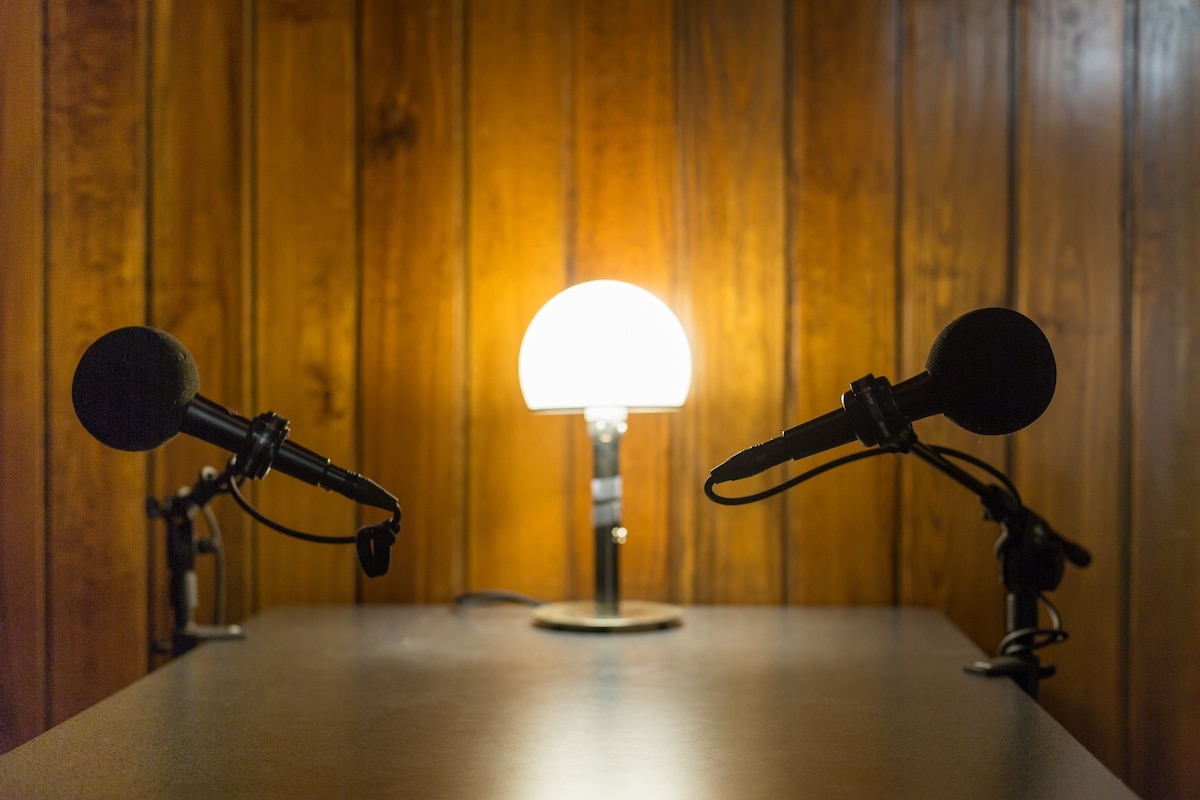
This activity is intended for grade levels 6-12, but learners of all ages are welcome!
What is Oral History?
How do historians know what happened in the past?
Think of researching history the way you solve a jigsaw puzzle: you use a variety of clues, including the image on the box, the shape of the pieces, and the pictures and colors on the pieces themselves to figure out how the puzzle fits together. Historical research is similar. To uncover what happened in the past, historians use books, manuscripts, maps, photos, buildings, objects, and more to piece together stories about our history. One of the most personal and powerful sources they use is oral history.
Oral histories are memories that people share about the past. Ever since humans developed language, parents passed down family and community history to their children orally—with the spoken word—rather than by writing alone. In some cultures, sharing these memories from one generation to the next is one of the most revered roles a person can have. They have a responsibility to provide lessons, celebrate their cultures, and make sure that their ancestors are never forgotten. These memories may be developed into songs, poetry, or long stories that certain members of the community are charged to memorize and share at community gatherings.
Now, many historians use video and audio recordings to preserve memories for the future. Oral history recordings allow us to hear about events and stories directly from the people who experienced them. We compare those memories with other records, like letters and government documents, to help get a full story about what happened in the past, how people felt about it, and why it matters.
Atlanta History Center has thousands of hours of oral history recordings in our collections. These are preserved by our archival staff and are used in exhibitions and programs. They also assist scholars who are writing books about the past or just trying to learn more for their own information.
Exploring oral history is a wonderful way to “meet the past.” Oral history collections at Atlanta History Center can be found on our online visual collections resource Album. We have lots to explore!
Activity: Listen to an Oral History
As a starting point to venture into these thousands of hours of history and in honor of the upcoming 100th anniversary of the 19th amendment—that’s the one that gave women the right to vote—we’re taking a listen to some interesting videos of women talking about their experiences.
Let’s listen to a few excerpts from these oral history recordings. Though most interviews last an hour or more, we’ve provided a two short clips below. Listen and see if you can answer the following questions:
- What is one thing they said in their interview that surprised you?
- If you could ask this person one question, what would it be and why?
Activity: Record Your Own Interview
Now, it’s your turn! Keeping with our theme of honoring the 100th anniversary of women gaining the right to vote (called “woman suffrage”) in the United States, we encourage you to interview a female friend, family member, teacher, or neighbor. Here are a few questions you might consider asking:
- What do you remember about the first time you voted?
- Who were the women you admired when you were my age?
- How have women’s roles changed since you were my age?
- What advice would you give to young people today?
If you want to share your interview, feel free to tag us on social media (with your interviewee’s permission and that of a responsible adult). If you have questions, e-mail us at Reference@AtlantaHistoryCenter.com and we’ll do our best to help.
Here are some tips:
- Before the interview, talk with your interviewee about what you would like to know and the questions you might ask in the interview. Be sure to talk about how the interview might be used, especially if you intend to share it on social media. You must have your interviewee’s permission to record the interview and you must keep any promises you make about what you will do with the interview.
- At the beginning of the interview, be sure to state your name, the interviewee’s name, where you are, and the date of the interview. You’ll want people to know in the future!
- Prepare some questions before your interview to help with getting started, but it’s okay to let the interview go where your interviewee wants it to go. Actively listen to your interviewee and ask follow-up questions about the stories they are telling, but never interrupt or argue with them. You might not get to all your prepared questions, but you will certainly learn something new and interesting! And remember, silence is golden. Don’t be afraid of it!
Feeling stuck? Need some questions to get you started? Take a look at this resource from our friends at StoryCorps, which offers great ideas for all kinds of questions.
Activity: Preserve Your Interview for the Future
Remember how we mentioned that some people in the past created poems and stories to help record the memories of their ancestors? We want you to give it a try! Using the information that you gathered through your interview (or, using the information from the clips that we provided earlier), try your hand at one of the following:
- Create a poem about the interview—rhyming or not rhyming, strict verses or free form, the form and structure is your choice!
- Write a short story about the interviewee’s memories.
- Create a digital poster describing the interview using a tool like Canva. With your interviewee’s and a responsible adult’s permission, we would love to see your creations! Feel free to tag us on social media or send an email to Reference@AtlantaHistoryCenter.com.

